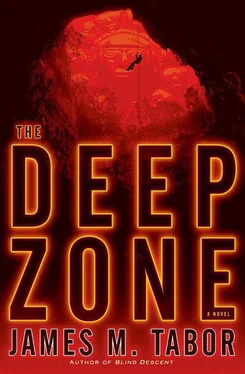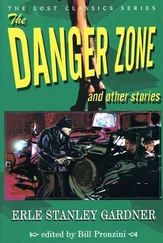“Please turn off that IV pump beeper.”
The nurse tapped a red touch-pad button on the pump’s front panel. “What else, ma’am?”
“What mode is the ketamine pump in?”
“Auto, ma’am.”
“Reset it to PC mode, please.” Patient control .
The nurse hesitated for just an instant. “The doctors like to keep them on auto mode, ma’am, when they’re dispensing pain meds.”
“I am a doctor, Lieutenant,” Stilwell said, locking eyes with the younger woman.
“Yes, ma’am, you sure are.” The nurse tapped an orange touch pad on the pump twice. “There you are. All set, ma’am.”
“Lieutenant?”
“Ma’am?”
“This stays with you and me. Clear?”
“Yes, ma’am. Clear.”
“Thank you. I think I’ll sleep a little now.”
It had felt good talking to the young lieutenant, had taken her mind to the green beauty of Vermont. Maybe she would go the Guard route, as Stilwell herself had. Or maybe she really would stay in. God knew the Army could use kids with degrees from places like Rice.
The phrase came back into her mind, as she had known it would. You don’t know what you’ve got till you lose it . But she had no guilt on that account. She had always known how precious Doug and Danny were, how infinitely lucky she was to have met such a man and had such a child. She knew that she had never taken either of them for granted, not for one second. Maybe it was because, as a doctor, she saw so much loss, but for whatever reason, having Doug and Danny had never become dull and ordinary, the way some things do after you’ve had them for a long time and grown accustomed to them.
As Stilwell lay there in the C-5A’s dim bay, tears began streaming down her face. It should have made her feel better, thinking of them, but now it did not. She thought of Ribbesh. Why are there such people? She had asked herself that question a hundred times. People who live to cause other people pain? She wrestled with the question through the ketamine fog, striving for some answer that made sense. Stilwell wasn’t a religious woman in the conventional sense, didn’t go to church every Sunday, didn’t take the Bible literally, couldn’t understand the minds of people who thought the world had been created— snap! —six thousand years ago, or whatever it was they believed. But she was spiritual, did believe in some kind of ordering higher power, and that faith in something larger than herself had been very valuable to a physician who often dealt with seriously damaged people.
Every once in a while, however, she ran up against something she could not reconcile with a loving higher power, and people like Ribbesh were the most troubling. He had actually seemed to take pleasure in making her suffering worse. She didn’t want to die, of course, but was fairly certain that she was going to. Before, at least there had been the comfort of knowing that Doug and Danny would be taken care of. Now she didn’t even have that.
Stilwell turned her head to look at the IMED Genie-R1. Just beneath the green LED screens showing dose level and drip frequency were two yellow touch pads, one with an arrow pointing up, the other with one pointing down. It would be so easy. She could just tap the up arrow over and over and the Genie would send her into a sleep from which she would never wake.
PAIN.
Terrible, blessed pain.
You don’t feel pain when you’re dead .
That thought blinked in Hallie’s brain like a firefly on a moonless night. Then it flicked out again and she was gone.
She came to again. Pain indescribable. But her brain flickered to life and the small light in the darkness grew brighter.
I’m alive .
How can I be alive?
She was lying on her back in the absolute darkness. Her wrists were still bound, but Cahner had tied her with lengths of parachute cord. It was dynamic—had a lot of stretch under load—and Cahner had not taken great care with her bonds. No reason to, really, since he had the Taser. Just enough to keep her from running away. Five minutes of stretching and wrenching, though painful, was enough for Hallie to work her hands free.
She took stock. Both hands worked, and arms and legs. She was not paralyzed, obviously, but her head hurt as though someone had been hitting it with bricks. How long had she been unconscious down here? She looked at her watch, which Cahner had not bothered to remove. Why would he have? He expected her to drop a thousand feet. But the fall had done what Cahner did not, and the watch was broken. No way to know how long she had been out. She might have suffered a serious head injury, concussion, subdural bleeding. Nothing to do about that now, though. Just try to ignore the pain and think.
She moved to hands and knees, groaned from the pain in her head and back, then cursed herself. For all she knew, Cahner might still be up there, listening to make sure she had died. She could see absolutely nothing, but she could feel, and the palms of her hands were touching something that felt like a thick, wet blanket. She moved to one side, gasping again with pain, and when she did the surface under her hands and knees moved. Terrified, she froze. What the hell was going on here? Experimentally, she pressed down gently with one hand. The surface gave beneath the pressure and then the rest of it undulated gently, almost like a huge water bed.
Then she understood. It was a microbial mat. A thick, living colony of photophobic bacteria sometimes formed atop a body of mineral-rich water. Such mats metabolized the elements in that water, primarily calcium, iron, and carbon. They could grow to be two feet thick. Beneath the mat would lie another, foot-thick gelatinous layer of metabolizing matter and, beneath that, water. Together, the mat and that subsurface layer had absorbed the shock of her fall. They also explained why the rocks she and Cahner had dropped earlier had made no sound.
So the biomass had broken her fall, like those giant cushions stuntmen landed on after dropping ten stories. Though from the way she felt, this mat may not have been as yielding as those Hollywood cushions. She lay back down, trying to still the pain in her head, breathing quietly, listening. She could hear, very faintly, the flowing water of the river that ran near the camp. She waited. When she judged that an hour, at least, had passed and she’d heard nothing but flowing water from above, she decided to try moving.
Her first concern was inadvertently punching through the mat. But then she reasoned that if the thing had been thick enough to break her fall from who knew how many feet, it could stand her moving around on it. She crawled in one direction for about fifteen feet, until she found the pit wall. Then, keeping her left hand in contact with the wall for balance, she stood up very slowly. The mat moved under her, and when she took a step it moved more. But she found that she could stand well enough, and began working her way around the circumference of the shaft. It was smaller than she remembered the surface opening being, and that was a very good thing, because it meant the walls would slant away from the floor rather than overhanging it. Climbing out was going to be hard enough, but if the walls had been overhanging it would have been impossible.
Having located the pit walls, she got down on all fours and began crawling back and forth in as close to a grid pattern as she could manage in absolute darkness, looking for anything Cahner might have tossed in after her. But there was nothing.
Can I climb out of this thing without the Gecko Gear?
Stupid question. You either do that or you lie down and die .
So that was settled. The question was, how? She could see nothing at all. But she knew that blind people climbed, and that some of them were among the best pure rock climbers on earth. For one thing, their hypersensitive fingers and feet found holds where sighted people could not. For another, being blind, they were immune to exposure, the inescapable sense of dread that got worse the higher you went on a wall and, after a time, began to feel like a dead weight pulling you over backward.
Читать дальше












